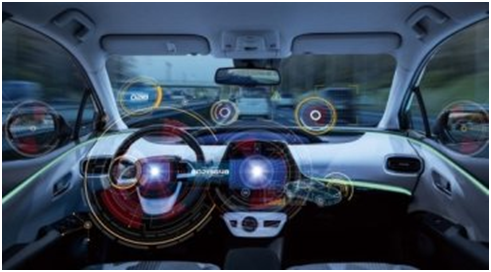Hyundai Motor Group Facing Uphill Battle against Automaker-Startup Alliances in U.S. and China

Hyundai Motor Group is facing an uphill battle against formidable alliances between automakers and startups in the United States and China.
The ecosystem of the automobile industry, one of the main industries in the past 100 years, is fundamentally changing in the era of the Fourth Industrial Revolution. In the past, it was a pyramid structure with finished carmakers at the top. But it is changing into an arena of competition where tech companies, mobility startups, battery makers, and carmakers form alliances to survive.
While the United States and China are developing an ecosystem of future cars by combining automakers, big tech companies, startups, and their capital markets, Korea continues to face a crisis situation where the entire automobile industry will crash into a bottomless pit if Hyundai Motor Group reels.
In the United States, startups such as Fisker, Rivian, and Canoe, automakers such as GM and Ford, and big tech companies such as Google and Apple are forming a huge ecosystem of future cars, with Tesla, the world’s No. 1 electric vehicle (EV) producer, at the center. Tesla, a startup that everyone ignored only 10 years ago, is leading the market by ranking first in global EV sales. Google, the epitome of a tech company, is leading self-driving technology through Waymo. Canoe with the Skateboard Platform is being courted by automakers around the world. Amazon, a distribution giant, also partnered with electric truck company Rivian. In China, not only automakers but tech companies such as Baidu and startups such as Li Xiang and Xiaopeng are emerging in the mobility industry one after another.
On the other hand, only Hyundai Motor Group is making investment in future cars in Korea. Due to a poor mobility ecosystem in Korea, Hyundai Motor Group has been making large-scale investments in autonomous driving (Aptive) and robotics (Boston Dynamics) in foreign countries. In other words, if Hyundai Motor Group falls behind, the entire Korean future car industry will collapse.
While global demand for automobiles is on the decline, the growing number of participants in the automobile market is also a negative factor to Hyundai Motor Group and the Korean automobile industry. In 2017, global automobile production reached 97.8 million units and was expected to soon break through the 100 million mark. But global output fell to 75 million units in 2020 due to the spread of the COVID-19 virus. This year, the figure is expected to increase to about 81 million units. Automakers including Hyundai Motor Group have to share the downsized market pie with new electric vehicle companies such as Tesla and startups.
Against this backdrop, investment capital is also flocking to startups armed with technology for the future. If this capital concentration phenomenon continues, polarization can also occur between startups and traditional automakers in terms of future investment.
Some traditional automakers lag behind in a chaos of the automobile industry. In particular, European carmakers are facing big threats. Some European carmakers, including Stellantis born out of a marriage Fiat Chrysler (FCA) and Peugeot Citroen (PSA), and Renault Group, announced cost cuts and restructuring plans and began to tighten their belts.
Another burden for Hyundai Motor Group is that the internal combustion engine (ICE)-powered automobile industry, a source of revenues for the Korean auto group is gradually becoming a “stranded asset.” As countries have declared their withdrawal from the internal combustion engine automobile industry by 2035 one after another, resistance by workers in this field and sunk costs will inevitably be a big burden in the process of slowly shutting down the ICE-powered automobile business.
On the other hand, new companies such as Tesla do not incur any such costs. This is because Tesla still produces 100 percent EVs and only sells them online. “If the EV market is preempted by startups, the existing ICE-powered automobile industry may face the same fate of dinosaurs in the past,” said Koh Tae-bong, head of research at Hi Investment & Securities.